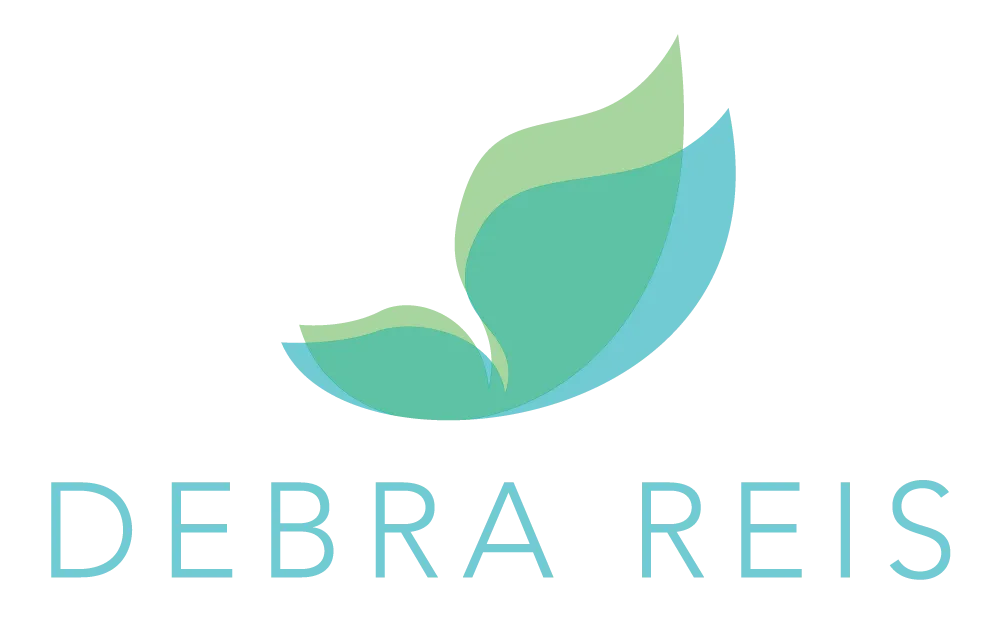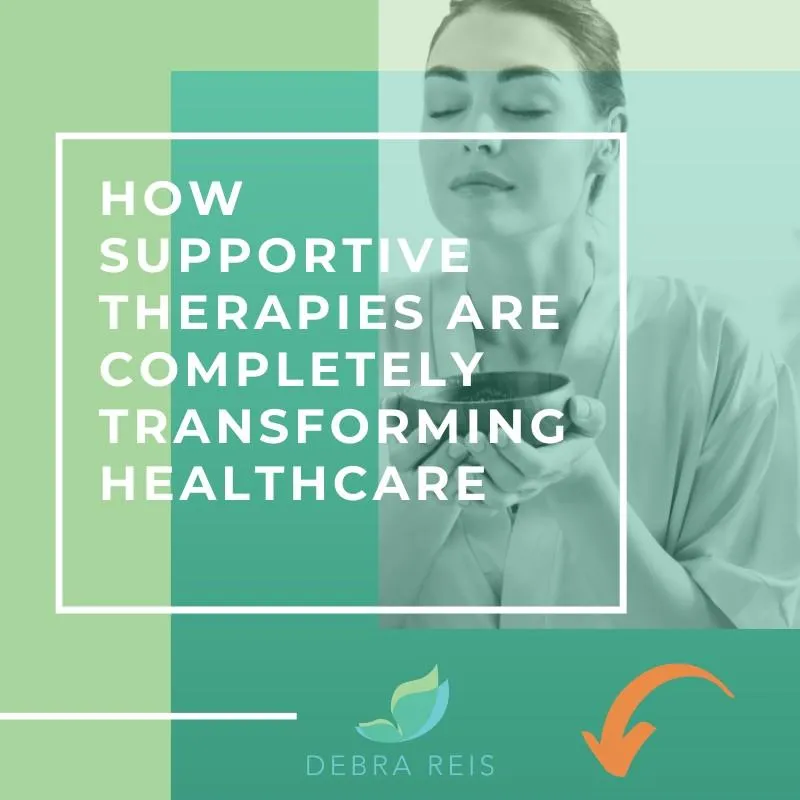BLOG
Supportive Therapies For Better Outcomes — Enrich Your Life Through Relaxation Techniques, Aromatherapy, and Gentle Movement.

Education Assists Nurses in Reducing Chaos Quickly
Often, nurses and others who have received education and training in a specific modality find it challenging to include it in their practice setting. Deterrents to practice include insufficient time, distractions, not being valued by the health team, and lack of knowledge to integrate therapies into a care plan. Nurses believe therapies may benefit a patient's plan, but other duties take them away from this focus. In addition, interested patients have to navigate through multiple services and practitioners to find a health plan that integrates traditional and CAM therapies.

It’s important that holistic tools be available to the healthcare team so they can use them quickly with effective outcomes. There is little information on integrating holistic modalities in clinical practice. There needs to be more evidence for educational programs that provide holistic therapies to hospital employees to use with patients and families in a streamlined manner.
An Established Program Gives Nurses Holistic Resources to Implement Quickly
The Healing Care Program provides integrative therapies and services to patients and their families with cancer diagnoses. This program is part of the Cancer Institute, which includes several satellite centers and has been providing services for over 15 years.
This program has been well received by patients, with referrals from various team members such as nurses, physicians, therapists, front desk staff, and others. The Healing Care staff realized they could not provide services to all the centers daily. The idea for support classes for the healthcare team was developed and implemented as an educational program available for all team members.
The purpose of the support classes is to educate the radiation and medical oncology staff about basic concepts and simple relaxation techniques so they can provide interventions when Healing Care nurses are not on site or available for a patient's need/concern. Employee education is voluntary, and information and experiences are given on simple relaxation and stress management techniques that can be part of a care plan or daily routine. This course also includes information on policies such as the Aromatherapy Policy and the safe use of essential oils in the oncology setting.
The support classes are given in 4-hour time blocks with continuing nursing education contact hours. These are taught by the two registered nurses with education and experience in Healing Care and Clinical Aromatherapy. The following is part of the curriculum outline:
Holistic Nursing Care
Centering, Grounding, Healing Presence
Benefits of Music
Relaxation Response
Meditation and Guided Imagery
Sleep Support
Touch Therapies, including Healing Touch
Aromatherapy with Essential Oils
Movement Therapies
Nurses Gain Confidence for Application of Holistic Therapies

Classes were provided at each of the satellite centers. Overall, evaluations were positive, with all participants indicating the “program met my personal objectives.” A total of 62 staff attended classes, with 30 being registered nurses. There were many comments about the information presented. The top themes of interest were aromatherapy, music, and relaxation techniques (breathwork, guided imagery, touch).
Comments that were shared included:
Enjoyed experiential - breathing, Healing Touch
Loved the Nia (gentle movement) and smelling the aromas
Looking more to have exercise onboard for patients
A great class to learn other treatments than just “meds.”
Happy to learn about the policies
Appreciate the information on aromatherapy
Future topics healthcare providers would like more information about include touch therapy, aromatherapy, and integrating complementary medicine into everyday practice.
The experience of providing support classes to the oncology team has provided other opportunities. There are now online classes on relaxation therapies and one on aromatherapy that new employees can do for continuing education on their flexible time. In addition, this online education helps those who have taken support classes to have a refresher on techniques and resources. Currently, planning is happening for using holistic therapies as part of a plan for department team cohesiveness and reducing nurse turnover. Nurse burnout is over 50% and nurses leaving healthcare is up to 30%.
We are in a healthcare crisis with demand significantly exceeding supply, especially nurses with experience and knowledge of the healthcare system. Holistic modalities are tools that nurses can easily incorporate into a patient plan without adding time constraints. In addition, healthcare workers are discovering how these holistic tools can be resources to calm their chaos and promote a work/life balance.

This blog is provided for educational and informational purposes only and is not medical, mental health, or healthcare advice. Although Debra Reis is a Clinical Nurse Specialist licensed in the state of Michigan, she is not acting in that capacity here. Debra Reis is acting as a holistic educator and consultant, not as a licensed medical health professional or in her professional capacity as a Clinical Nurse Specialist. The information presented here is not intended to diagnose, treat, heal, cure or prevent any illness, medical condition, or mental or emotional condition. Working with us is not a guarantee of any results. Debra Reis, Wellness Services, LLC owns all copyrights to the materials presented here unless otherwise noted.

Education Assists Nurses in Reducing Chaos Quickly
Often, nurses and others who have received education and training in a specific modality find it challenging to include it in their practice setting. Deterrents to practice include insufficient time, distractions, not being valued by the health team, and lack of knowledge to integrate therapies into a care plan. Nurses believe therapies may benefit a patient's plan, but other duties take them away from this focus. In addition, interested patients have to navigate through multiple services and practitioners to find a health plan that integrates traditional and CAM therapies.

It’s important that holistic tools be available to the healthcare team so they can use them quickly with effective outcomes. There is little information on integrating holistic modalities in clinical practice. There needs to be more evidence for educational programs that provide holistic therapies to hospital employees to use with patients and families in a streamlined manner.
An Established Program Gives Nurses Holistic Resources to Implement Quickly
The Healing Care Program provides integrative therapies and services to patients and their families with cancer diagnoses. This program is part of the Cancer Institute, which includes several satellite centers and has been providing services for over 15 years.
This program has been well received by patients, with referrals from various team members such as nurses, physicians, therapists, front desk staff, and others. The Healing Care staff realized they could not provide services to all the centers daily. The idea for support classes for the healthcare team was developed and implemented as an educational program available for all team members.
The purpose of the support classes is to educate the radiation and medical oncology staff about basic concepts and simple relaxation techniques so they can provide interventions when Healing Care nurses are not on site or available for a patient's need/concern. Employee education is voluntary, and information and experiences are given on simple relaxation and stress management techniques that can be part of a care plan or daily routine. This course also includes information on policies such as the Aromatherapy Policy and the safe use of essential oils in the oncology setting.
The support classes are given in 4-hour time blocks with continuing nursing education contact hours. These are taught by the two registered nurses with education and experience in Healing Care and Clinical Aromatherapy. The following is part of the curriculum outline:
Holistic Nursing Care
Centering, Grounding, Healing Presence
Benefits of Music
Relaxation Response
Meditation and Guided Imagery
Sleep Support
Touch Therapies, including Healing Touch
Aromatherapy with Essential Oils
Movement Therapies
Nurses Gain Confidence for Application of Holistic Therapies

Classes were provided at each of the satellite centers. Overall, evaluations were positive, with all participants indicating the “program met my personal objectives.” A total of 62 staff attended classes, with 30 being registered nurses. There were many comments about the information presented. The top themes of interest were aromatherapy, music, and relaxation techniques (breathwork, guided imagery, touch).
Comments that were shared included:
Enjoyed experiential - breathing, Healing Touch
Loved the Nia (gentle movement) and smelling the aromas
Looking more to have exercise onboard for patients
A great class to learn other treatments than just “meds.”
Happy to learn about the policies
Appreciate the information on aromatherapy
Future topics healthcare providers would like more information about include touch therapy, aromatherapy, and integrating complementary medicine into everyday practice.
The experience of providing support classes to the oncology team has provided other opportunities. There are now online classes on relaxation therapies and one on aromatherapy that new employees can do for continuing education on their flexible time. In addition, this online education helps those who have taken support classes to have a refresher on techniques and resources. Currently, planning is happening for using holistic therapies as part of a plan for department team cohesiveness and reducing nurse turnover. Nurse burnout is over 50% and nurses leaving healthcare is up to 30%.
We are in a healthcare crisis with demand significantly exceeding supply, especially nurses with experience and knowledge of the healthcare system. Holistic modalities are tools that nurses can easily incorporate into a patient plan without adding time constraints. In addition, healthcare workers are discovering how these holistic tools can be resources to calm their chaos and promote a work/life balance.

This blog is provided for educational and informational purposes only and is not medical, mental health, or healthcare advice. Although Debra Reis is a Clinical Nurse Specialist licensed in the state of Michigan, she is not acting in that capacity here. Debra Reis is acting as a holistic educator and consultant, not as a licensed medical health professional or in her professional capacity as a Clinical Nurse Specialist. The information presented here is not intended to diagnose, treat, heal, cure or prevent any illness, medical condition, or mental or emotional condition. Working with us is not a guarantee of any results. Debra Reis, Wellness Services, LLC owns all copyrights to the materials presented here unless otherwise noted.


